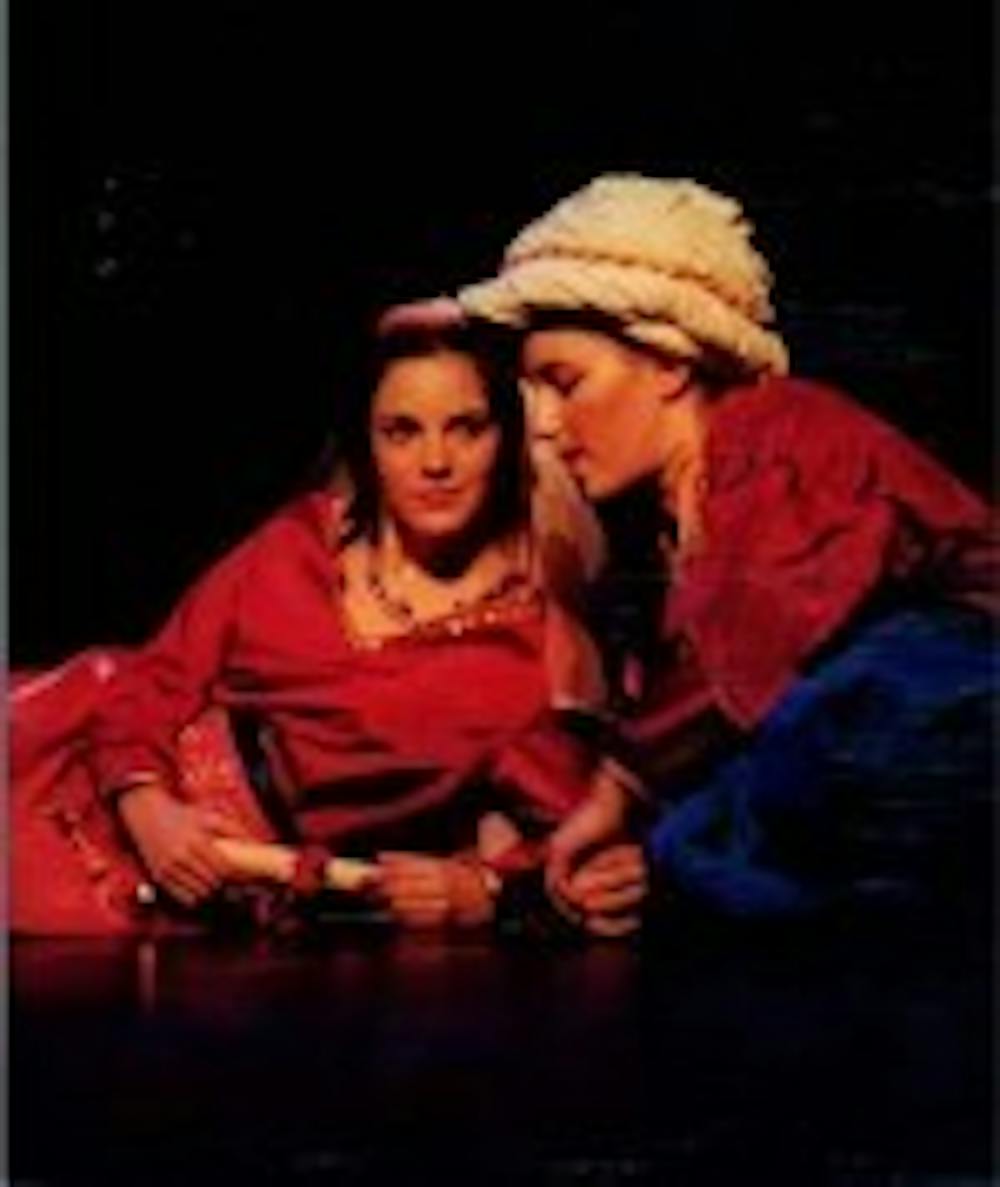Lovers Serse and Amastre from George Friedrich Handel's opera "Serse," are engaged in levels of dishonesty, betrayal and threats of suicide reminiscent of modern-day soap operas. It could have been Luke and Laura, Dylan and Brenda, Zack and Kelly, plus a few turbans and a little more deceit.
Directed by Dora Ohrenstein, and presented by The UB Opera Workshop, "Serse" packed audiences Wednesday and Thursday at the Center for the Arts Drama Theater.
Opera in the popular imagination connotes grandiose images of passion brought to the shrill level of a fever pitch. But Handel's "Serse," which relied little on tragedy and blood, offered a subdued version of the typically histrionic opera. The efforts of a skilled cast, however, paid off.
If the performance proved nothing else about the art of opera, it showed the potential of a masterful human voice. The accentuated flows and trills of an opera's score are not easy to perform and belting out high notes is not easy on the vocal chords. The cast should receive acclaim for merely persevering through this difficulty.
That said, the dramatic interpretation of a wide array of emotions rarely reached the accomplished level of their vocal bravado. On the whole, the cast was strong in its vocal conviction, but at times, it appeared the vigor needed to properly convey all points in the twisting plot escaped them. By the end of the two-hour opera, the performers seemed worn out by the sheer duration of the show.
Perhaps their fatigue Wednesday night was due to faster tempos in the orchestra, led by Roland E. Martin. However, by Thursday night, the orchestra seemed to adjust to a more fitting, and often slower, pace, allowing the singers opportunities to better phrase their lyrics.
As a side note, UB's unique incarnation of Handel's opera featured an interesting twist on the Italian tradition. Typically, male castratti singers would assume the high-pitched, female roles. But in UB's production, the male leads were actually played by women: Kimberly Grant as King Serse and Margaret Mair/Beryl Fanslow as his brother Arsamene.
In the first act, Serse finds himself immediately in love with the beautiful Romilda - a role played on Wednesday and Thursday nights by Allison Krueger and Deborah Smith respectively. But Arsamene who is secretly in love with Romilda, pretends he does not know her in public.
Act two brings together the triangle of Serse, Arsamene and their love Romilda with another web of confusion. Amastre (Kristy Kapturowski/Brandy Valley), a princess betrothed to Serse, hides in the gardens to figure out whom Serse intends to marry. Like a tennis match that does not seem to want to end, couples of all sorts are thrown back and forth with each other, leaving unclear their resolutions and intentions.
But like the sunny conclusion in most sitcoms, the third act brings together the couples for a happy ending of joyful glee and merriment.
But following the progression of the convoluted love plots presented difficulties of its own. Even with subtitles projected over the stage, "Serse" presented a challenging storyline that was not readily accessible.
The translation, too, had its own problems. An understanding of Italian was not necessary to realize that the dialogue presented above the stage was, several times, displayed incongruently with the actions on the stage.
Yet the performers displayed particular skill at translating their passions to the audience. As a regal authority, Grant displayed an apparent and rare skill for the opera voice. Viewers did not have to read the subtitles to understand how she felt, although perhaps her voice could have projected more to the crowd. But more amazing is the feat Grant accomplished behind the scenes. While most of the cast had close to a year to prepare for the opera, Grant learned her entire role in less than a month after the original lead got sick.
Standing out for his characterization of the pompous and too-sure-of-himself general of Serse's army, Boris Hellmann's Elviro was strong yet humorous. His talent is the sort that this workshop is intended for.
Operating on about a $6,000 budget, the UB Opera Workshop created an atmosphere that both matched and surpassed the expectations of their financial constraint. Although it was apparent the sets were made on a shoestring, the costumes, many of which were tailored in-house, were particularly lavish. Although unable to be seen from a distance, intricacies such as hand stitching and patterned beadwork atop the layers of colorful garments enhanced the visual spectacle.
The best way to characterize "Serse" is to look at it from the standpoint of an average person's familiarity with the opera. While the opera is never entirely comprehensible, the audience members can still appreciate the value of the voice and the depth of the emotions they admit. Such was the case with "Serse."





